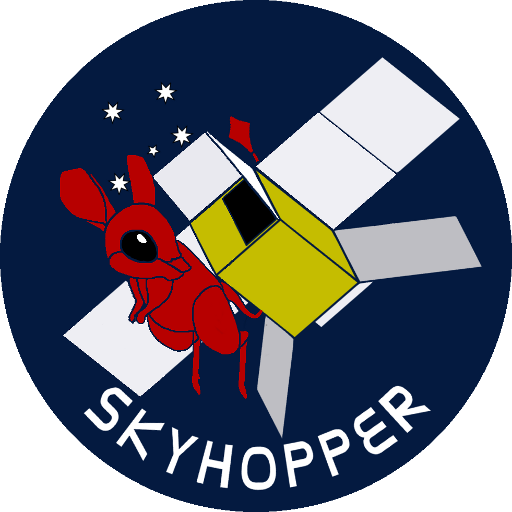About SkyHopper
SkyHopper is a compact but powerful space telescope concept for astronomical observations at near-infrared wavelengths from a 12U CubeSat (roughly 22x24x36 cubic cm, 24 kg). The goal of the SkyHopper telescope is to break new ground in low-cost astronomy from space by advancing the state-of-the-art in rapid follow-up of Gamma Ray Bursts originating in the infancy of the Universe, searching for extra-solar planets around the coldest stars in the Solar neighbourhood, and exploring the Cosmic Infrared Background. SkyHopper will also seed infrastructure and expertise in Australia for science from CubeSats.
SkyHopper is currently funded for preliminary design, and it is envisioned to be launched in 2024, operating in low-Earth orbit. Its primary science payload will consist of a reflective telescope optimized for 1-1.7 micron observations with an actively cooled detector with 4 megapixel resolution. The spacecraft which will support the SkyHopper telescope will have state-of-the-art reaction wheels and star trackers to achieve attitude control to a level comparable to the telescope’s angular resolution.
The SkyHopper idea was conceived in June 2015 at The University of Melbourne by four scientists with diverse expertise and backgrounds. In early 2018, the project combined with the Australian Space Eye CubeSat team to work together on a single mission concept for Australia’s first space telescope, supported by a large fraction of the national higher research institutions active in astronomy. Our expanded team now encompasses a consortium of 16 among the world’s leading institutions in Australia, the United States and Europe.
 |
| The SkyHopper mission concept. The SkyHopper telescope will be hosted on a spacecraft capable of autonomously pointing to new targets with high-stability (< 3:5″) in less than 2 minutes. The combination of timeliness on target and low-noise infrared image quality from space will offer a facility unique in the world to seed Australia’s research infrastructure for space astronomy. SkyHopper will support a broad range of strategic national and international priorities in astronomy and space science research, advance miniaturisation of scientific instrumentation, train future astronomers and space scientists, and inspire the public. |

Rapid Response Telescope